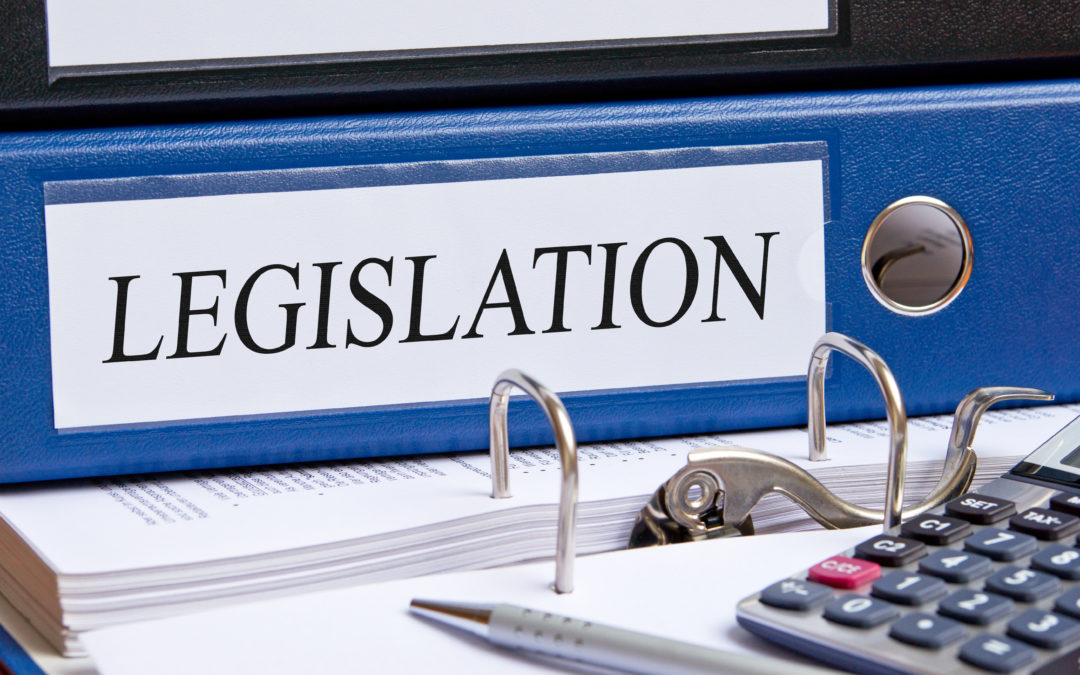
by Buzz Brockway | Mar 16, 2021
Many Special Needs Students Have Struggled with Virtual Classes
For some students virtual classes during the past year have been fine. Some have even thrived. But for many special needs students, it has not gone well, as a parent tells the Georgia Center for Opportunity:
A virtual classroom worked fine for Jennifer’s two older children, but her youngest son, 10-year-old Joey, has Down syndrome. Online learning is entirely unworkable for him due to his special needs.
For example, DeKalb is following a normal bell schedule but staying engaged on Zoom for hours on end is not working. Morning classes will sometimes go well, but by lunchtime Joey is tuned out. It is impossible to get him back online after the lunch break for specials, such as music and art, and Jennifer cannot stay tied up until 2:30pm every day. She has seen academic and social regression for her son as he has little to no interaction with peers.
Additionally, his academic growth is limited due to repetitive practice of current skills on worksheets with no new individual instruction to learn new concepts in language arts or math. As a highly visual and experiential learner, he is missing the magic that happens in a classroom that cannot be replicated on a Zoom call.
“It’s day-by-day and minute-by-minute,” Jennifer shares. “One class he is engaged and on task, and the next minute he is hiding under the bed or taking his shirt off.”
All children, no matter their needs, deserve the opportunity for a high-quality education that meets their individual requirements.
Today, Axios wrote about a newly released report on 130 studies on the safety of school reopening. The report found:
- Any benefits to closing schools are far outweighed by the grave risks to children from remote-only schooling — risks that intensify the longer it continues, the report says.
- The harms include academic loss — so severe that it could set children back for life — and mental health problems related to loneliness and isolation.
- There are also severe hardships on parents — mothers in particular, about two million of whom have left the workforce to care for their kids as part of remote learning.
- “Schools are not super-spreaders,” observes the report, written by John P. Bailey, a former deputy policy director at the Department of Commerce.
Fortunately almost 73% of Georgia’s school districts are open for face to face learning. The rest need to reopen ASAP, and plans need to be made to help students who fell behind catch up.
This post originally appeared on PeachPundit.com on March 11, 2021.

by Buzz Brockway | Jun 30, 2020
Highlighting Legislation Passed in the 2020 Georgia Legislative Session
By Buzz Brockway
Ordinarily, the Georgia Legislature would have wrapped up its 40-day legislative session by the end of March. But 2020 is no ordinary year. As the pandemic spread, the Legislature suspended its session in mid-March with no return date announced. Eventually, lawmakers reconvened with 11 legislative days left to address a plethora of issues.
Looming large was the fiscal year 2021 budget, and as you can imagine, the budget outlook was much different in June than in March. State revenues plunged due to the shutdown and budget writers scrambled to decide the best path forward. After tapping into the state’s rainy-day fund, lawmakers passed a budget with 10 percent cuts, approximately $2.2 billion smaller than originally proposed. No state department was spared, but some departments—like education—received smaller cuts than other departments.
Apart from the budget, perhaps the issue that garnered the most attention was a hate crimes bill, HB 426. The murder of Ahmuad Arbery in Brunswick, GA, as well as the deaths of George Floyd and Breonna Taylor at the hands of police, created a political situation where ignoring this issue was impossible. Georgia previously had a hate crimes law that was declared unconstitutional by the State Supreme Court. HB 426, now signed into law by Governor Kemp, provides sentence enhancements after a person has been convicted of certain crimes motivated by bias against defined groups of people.
Two pieces of legislation we at the Georgia Center of Opportunity actively supported passed both houses and await the Governor’s signature. SB 288 allows a person convicted of certain non-violent misdemeanors, who have kept a clean record for a specific length of time, to seek to have those records restricted. This will allow these folks to have a better chance of employment. Another bill meant to assist people obtaining a job is HB 914. This bill will provide a temporary occupational license to spouses of members of the armed forces who move to Georgia. Georgia has a large number of military installations, so many people will benefit from this bill.
Other legislation of interest includes HB 888, which seeks to prevent “surprise billing.” A “surprise bill” occurs when an out-of-network physician treats a patient. These bills can become quite large. It is hoped this legislation will prevent this situation from occurring again.
More progress was made in the fight against human trafficking as HB 823 and SB 435 passed. HB 823 would prevent a truckdriver convicted of human trafficking of ever holding a commercial driver’s license again in Georgia. SB 435, known as the “Debbie Vance Act,” would allow a person convicted of trafficking to have their conviction vacated if they can prove they were a victim of human trafficking.
Foster parents will be allowed to arrange for short-term babysitting under HB 912, which awaits the Governor’s signature.
Government transparency and accountability got a boost with the passage of HB 1037. This bill would require audits on production companies seeking to take advantage of Georgia’s film tax credit. An audit earlier in the year revealed oversite problems in this very large tax credit. Price transparency for non-emergency medical services is the subject of SB 303, which was sent to the Governor’s desk. Empowering patients with pricing information can help lower costs for shopping of these non-emergency services.
Despite the strange nature of the 2020 Legislative Session, many things were accomplished. The Georgia Center for Opportunity will continue to work hard to advance legislation to increase educational opportunity, knock down barriers to employment, and strengthen families. We look forward to continuing this effort in the next legislative session.
We are driven by a belief – supported by experience and research- that people from all walks of life are more likely to flourish if they have an access to quality eduction, fulfilling employment, and live within healthy families. See what policy issues we’re working on to break down barriers and create pathways for all Georgians to flourish.
Visit our Policy Solutions Initiative

by Buzz Brockway | Jun 23, 2020
All Georgians Deserve to Participate in The Economic Recovery
By Buzz Brockway
The Coronavirus pandemic has caused massive numbers of people to lose their jobs. Georgia’s official unemployment rate is 9.7%. However, as we reported last week , many others are not employed but do not appear in the common reported unemployment number.
A top goal of policy makers, and indeed all Georgians, should be to see people return to work as quickly as possible. Work is the best path to financial independence and a flourishing life.
As we endeavor to rebuild our economy, we must look to remove barriers people face in returning to work. One significant barrier many people face is a criminal record. For those with a criminal record who lost jobs due to the pandemic shutdown, finding work again could be difficult. For ex-offenders who didn’t have a job, the task of finding one just became even more difficult. Our research estimates that approximately 250,000 healthy working age men had no job prior to the pandemic. The reasons for their lack of employment vary, but for many, a criminal record is the barrier keeping them out of the job market.
What can be done to address this significant problem? In recent years, Georgia has focused on prison reentry programs meant to assist folks as they transition back into society. This work is important and must continue. But for those already back in society, other assistance is needed.
With Senate Bill 288, the Georgia Legislature has the chance to aid ex-offenders looking for work. The bill would allow an ex-offender, who has served his or her time and stayed out of trouble for a period of time, the opportunity to have certain non-violent misdemeanors expunged from the record. This will allow for an easier transition back into the workforce for a segment of Georgia’s population, who have paid their debt to society and stayed on the straight and narrow.
The benefit to our state in passing this legislation comes in several ways: Ex-offenders with jobs are less likely to recidivate. People who don’t get in trouble again cost the taxpayers less money and actually join the ranks of taxpaying citizens.
Ex-offenders with jobs are able to support their families, reducing poverty and lifting up the communities in which they live. If we want to break the cycle of poverty in our state, we must provide a path out for families. A job is the first step on the path to self-sufficiency and a flourishing life.
We are in the final week of the 2020 Georgia legislative session. There are many important issues being debated and policies being discussed to make our state better. At the top of the list should be providing a path forward for folks who need our help. SB 288 is an excellent step in the right direction.
To learn more about what Georgia Center for Opportunity is doing to help get Georgians back to work check out our Hiring Well, Doing Good initiative.

by Buzz Brockway | Jun 9, 2020
The Georgia Department of Education (DOE) last week released guidance for local Boards of Education to consider as they develop plans for the 2020-2021 school year. “Georgia’s Path to Recovery for K-12 Schools” (www.georgiainsights.com/recovery.html) does not issue mandates to local school systems, but rather guidance, expecting that situations on the ground will be different in different parts of Georgia. This requires locally elected School Board members to take the lead and chart a clear reopening plan for their schools. Additionally, leaders of Georgia’s private schools could refer to this document when considering how best to bring students back to campus.
Parents need to see clear, easy to understand plans to give them comfort that their children will be safe, and in an environment where they can learn. Teachers need guidance on how best to prepare for the upcoming school year. Teachers also need to know what gaps developed in their student’s education during the shutdown. Students and teachers were forced to adjust to remote learning on the fly as the COVID19 pandemic swept across the country. Some thrived in the online environment. Others did not. A lot is riding on the 2020-2021 school year. School leaders and local Boards of Education have an important task in front of them.
The DOE document contains two main items. First schools and school systems should determine if their community has substantial, minimal/moderate, or low/no spread of COVID19.

What constitutes substantial, minimal/moderate, or low/no spread is not explained. Admittedly, defining these terms is difficult, however, the lack of definition creates the possibility that what one local school system considers substantial spread, another considers low. School Leaders and Local Boards of Education need clarity on what these levels of spread mean.
Once a school or school system determines which level of spread exists in their community, DOE provides guidance on what the school day might look like for schools in the various spread levels.

Areas of the state with substantial spread are encouraged to exclusively use a distance/remote learning model. Education could be delivered by the school or via the Georgia Virtual Academy (www.gavirtuallearning.org), or a combination of both. Clearly internet access will be very important in delivering distance/remote learning. Schools will need to tackle this issue head-on for students with limited internet access.
In areas with minimal/moderate spread, a student’s school day could consist of the distance/remote model, the traditional model, where a student is in the classroom with live lectures by their Educator, or a hybrid model with distance/remote learning at certain times, and traditional classroom learning at other times.
For students in a school where the spread is considered low, their school day would be largely as it was in the days before COVID19. Except perhaps with certain precautions like social distancing, facemasks, and extra cleaning of the school facilities.
Additional detail on these two main items, including suggestions for dealing with a new COVID19 infection, can be found in the complete guidance document (link above).
An additional challenge for schools and school systems reopening plans is understanding the mood of parents. Will parents feel safe sending their children back to school? Crafting detailed plans for what the school day will look like, what precautions will be taken to reduce the chance of infection, and what protocols are in place should a student or adult become infected, will be of paramount importance.
A glimpse into what parents in one part of Georgia are thinking can be found in a survey conducted by Forsyth County Schools. 12,350 people (approximately 75% of whom were parents not employed by Forsyth County Schools) responded to the question “What is your comfort level with students returning physically to school in August?”
42 percent were either extremely or very comfortable with students physically returning to school in August, while 39% were slightly or not at all comfortable. Another 19% were moderately comfortable. Forsyth County Schools has not issued a definitive date for reopening. It would seem parents need to feel more confidence in the school environment before schools reopen in Forsyth.
Giving the rapid pace of change in regard to the COVID19 pandemic, schools and school systems would be wise to prepare for many different scenarios and develop many trusted sources of information to make decisions. Clear and regular communication with parents will be crucial to increasing parent’s comfort level in sending their child off to school.
https://www.forsyth.k12.ga.us/cms/lib/GA01000373/Centricity/Domain/28/4th%20Quarter%20Online%20Learning%20Survey%20-%20Final%20Results.pdf








